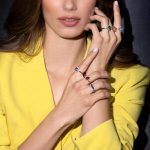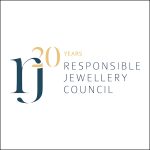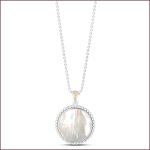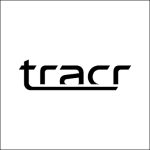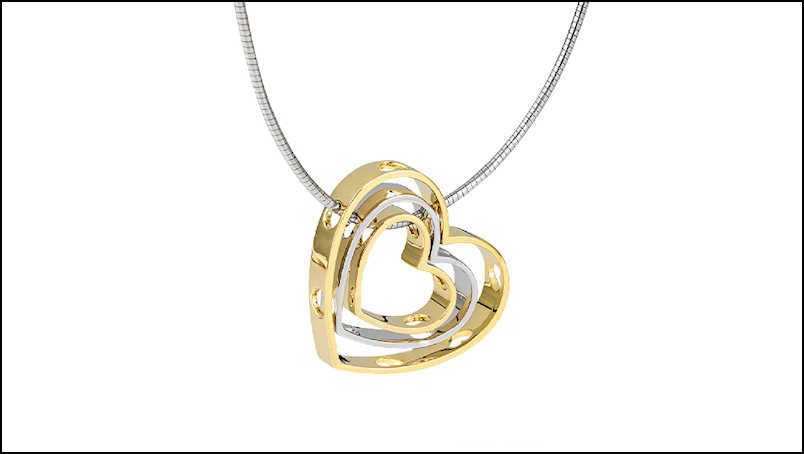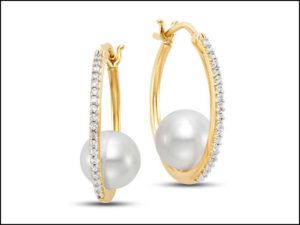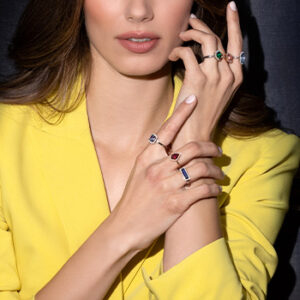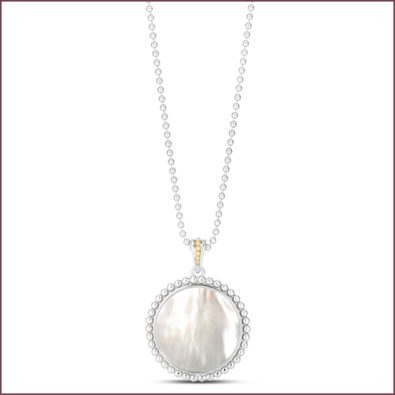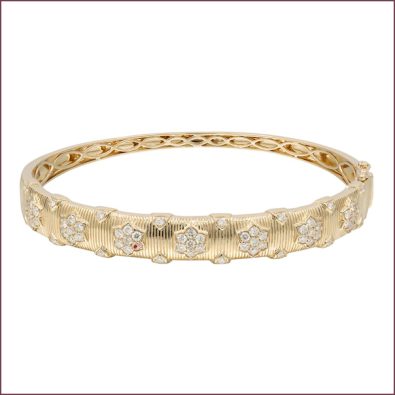The New Buyer: The Self-Purchaser
Currently, women drive 80%-85% of consumer purchasing through a combination of buying power and influence.
Recent jewelry market research by several industry organizations underscores the importance of the self-purchaser for jewelry sales moving forward. The JCK 2021 State of the Jewelry Industry Report, released this summer, hails the self-purchaser to be the “new buyer” the trade should focus on.
The jewelry industry has long been aware of the growing presence of female self-purchasers, but data finds 76% of the nearly 700 jewelers interviewed in January for JCK’s report have seen a rise in women buying jewelry for themselves. What they reveal is that the purchases are significant: Stores with revenue over $1 million noted an average sale of $1,736 for women buying for themselves, while stores with revenue under $1 million pegged these sales at an average $1,164.
The Plumb Club’s latest Industry & Market Insights 2021, in a survey of 1,000 U.S. jewelry consumers, found the average spend to be about $1,200, with the ability to finance a big draw. According to retailers surveyed by JCK, $500 is the most appealing price point for female self-purchasers of fine jewelry. While women typically spend less than men on jewelry, they buy more often.
Women are expected to be the largest segment of customers in the future, reports Fortune Business Insights. It is estimated that by 2028 women will own 75% of the discretionary spend, making them the world’s greatest influencers. In fact, currently in the U.S. women drive 80%-85% of consumer purchasing through a combination of buying power and influence.
The most likely age group for self-purchasing is Gen Z, though 45% of the older generations also reported buying themselves at least one piece of jewelry.
According to Lyst, women account for 78% of women’s jewelry purchases on the popular fashion platform. Just over half of Millennial women buy their own jewelry cites a Capital Counselors study. Not surprising, De Beers and the Women’s Jewelry Association launched campaigns targeting self-purchasing women.
“Everyday jewelry is hands down the biggest trend for self-purchasers,” describes Fran Penella, spokesperson for Mastoloni Pearls, New York. “We are seeing how important it is that a piece of jewelry be versatile enough to wear morning, noon and night, and for any occasion.”
“Fast fashion options are fewer with the economic impact over the last 18 months, but what we are seeing is a trend to a considered purchase that can last through any turn in our daily lives,” says Kaitlin Derkach, spokesperson for Citizen and Bulova. “We’re taking stock in what we have at home, in our closet or jewelry box. Timeless trumps fashion, classics that can be worn with lifestyle and longer-term options. It’s somewhat the same for men, with a casual slant.”
Layer It On
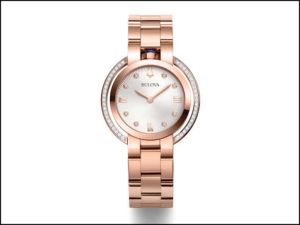 The trend to layer jewelry offers one of the greatest promises in that it applies across different types and styles of jewelry, fueling multiple self-purchases. JCK Insights found that layering is the No. 1 jewelry trend for a quarter of jewelers interviewed, and among the top three for 47%.
The trend to layer jewelry offers one of the greatest promises in that it applies across different types and styles of jewelry, fueling multiple self-purchases. JCK Insights found that layering is the No. 1 jewelry trend for a quarter of jewelers interviewed, and among the top three for 47%.
“Layering can mean anything from more than one gold chain to mixed metals and multiple jewels,” JCK reports. “As such, it offers virtually unlimited opportunities for creative display, whether in a store window or Instagram post, as well as to sell more than one piece at a time.”
The layering of necklaces has been especially strong, finds Valerie Fletcher, vice president of design and product development for the New York City-based Original Design Inc. (ODI). She says that women are layering styles like delicate, diamond pave shapes that are versatile and can be mixed and matched.
Zoom In
As Vogue recently reported, the pandemic and Zoom have ushered in a new era of waist-up dressing that keeps jewelry like earrings and necklaces in the limelight. For fall, fringe is a major theme, flying from ears and collarbones, as well as seams. Jewelry designers are offering many variations on the trend from cascading gem beads and pearls to chain mesh.
Hoop and huggie style earrings remain a strong category for female self-purchase, explains Theresa Namie, merchandise manager for Ostbye, in Minneapolis, Minnesota. She definitely attributes this to the Zoom era, which will continue, despite getting back to in-person meetings and events. In fact, JCK sees Zoom jewelry as having its own niche moving forward.
According to TPC Insights, consumers prefer a variety of motifs to buy for themselves, notably coins and medallions, zodiac symbols, religious icons, and constellations. Fletcher cites that genderless styles like signet rings, diamond studs and dog tags are popular for women and men for self-purchase.
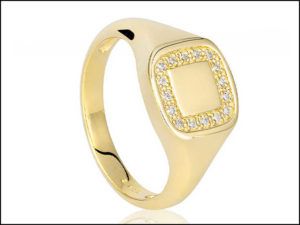
With the launch of its latest gents’ collection, Marcus, Breuning has seen sales rise for customizable signet rings for self-purchasing men, shares Malia Villanueva for the brand in Lawrenceville, Georgia. The collection, which also features cufflinks, is crafted in gold and silver with gems like lapis and onyx.
Celestial motifs, especially stars have been among the favorites, adds Namie, as they convey a positive message that resonates with all age groups. According to TPC Insights, star/moon/sun imagery is devoid of fussy forms, is gender neutral, and unifies the love of jewelry.
Namie also expects that the organic/nature trend will continue to be strong, as it can convey different meanings for different people. She references “leaves for growth, flowers for love, and trees for strength”.
Linked In
The paperclip-style link remains a popular element in earrings and necklaces that Allison Peck for the brand Brevani of New York describes as the ideal spirit jewel — something small holding it all together! Available in different renditions, the silhouette is perfect to layer with delicate pieces, or add charms to or a fun clasp.
The link as a design element lends itself to an array of jewelry, for both men and women, describes Jonathan Cohen, president of IB Goodman in Newport, Kentucky. He sees the bolder links like the Cuban style as the ideal canvas to splash diamonds when used for cufflinks, rings and earrings. He also sees interest in nugget style jewelry that has a rugged look but unisex appeal, particularly a favorite among younger consumers.
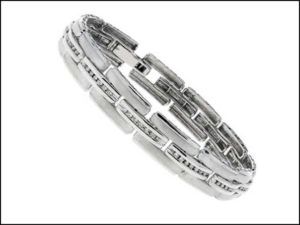 Among the jewelry directions identified in TPC Insights for men include black design elements — diamonds, spinel, pearls, ceramic, enamel, and gold; links and chain; blue and green stones, raw diamonds and uncut gems; textured gold, from nugget to hammered; and colored titanium, tungsten and stainless steel.
Among the jewelry directions identified in TPC Insights for men include black design elements — diamonds, spinel, pearls, ceramic, enamel, and gold; links and chain; blue and green stones, raw diamonds and uncut gems; textured gold, from nugget to hammered; and colored titanium, tungsten and stainless steel.
Namie says that while men love gold, they also gravitate to contemporary metals, like tantalum, which Ostbye is introducing in new men’s bands. “It’s strong and rugged looking,” she describes. “It’s a little heavier, which gives the wearer a feeling of strength.”
